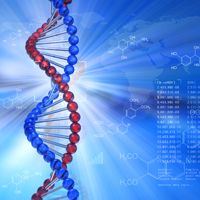Children's Genes May Cause RA Symptoms in Mother
A child's genes may invoke symptoms of rheumatoid arthritis in a mother while she is carrying, according to research from the University of California, Berkeley.

A mother’s risk for rheumatoid arthritis (RA) can be traced to her child’s genetic makeup, according to research presented at the American Society of Human Genetics 2014 Annual Meeting in San Diego on October 21. Women are up to 3 times more likely to develop the disease than men, and these findings may reveal the reason why.
Researchers from the University of California Berkeley analyzed the genes of women both with and without the presence of the immune system gene HLA-DRB1, which are known as the epitope alleles, as well as genes from their children. HLA genes are involved with responding to infection and differentiate between the body’s own cells and ones that are foreign. The children who were shown to have the alleles present — they were inherited from the father – showed an increased risk in RA in the mother. This was true even after the researchers adjusted for differences in mothers’ genes. The researchers believe this proved that although women are especially susceptible to RA, they are at greater risk when carrying and bearing children who have certain specific high risk alleles present.
“During pregnancy, you’ll find a small number of fetal cells circulating around the mother’s body, and it seems that in some women, they persist as long as several decades,” first author Giovanna Cruz, MS, graduate student at UC Berkeley, explained in a press release. “Women with rheumatoid arthritis are more likely to have this persistence of fetal cells, known as fetal microchimerism, than women without the condition, suggesting that it is a potential risk factor for the development of rheumatoid arthritis. Why it happens, we don’t know, but we suspect HLA genes and their activity may be involved.”
The researchers hope their findings can also lead to research exploring how to assess a woman’s risk of RA depending on her children’s or partners’ high risk gene presence. Another area of research that shows potential for exploration is analyzing multiple generations of RA cases, including mothers of people with the disease. In that case, they would explore the role of HLA encoded proteins and microchimerism.
“We don’t yet understand how the shared epitope and other HLA alleles influence RA risk, but one possibility is that interactions between the proteins these genes encode may stimulate the autoimmune symptoms of the disease,” Cruz concluded, further explaining that proteins produced by the fetus may be recognized as foreign by the HLA genes of the mother, which would cause symptoms of RA.